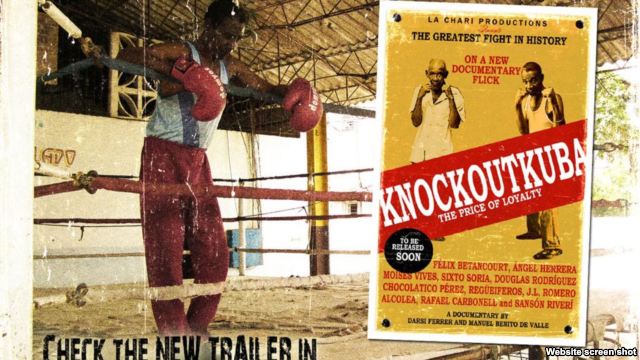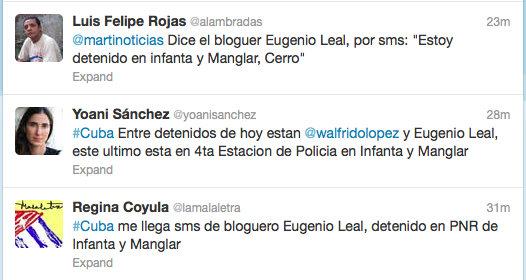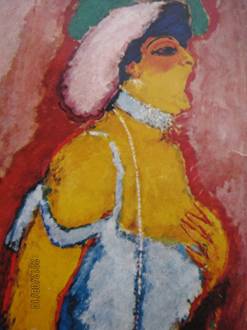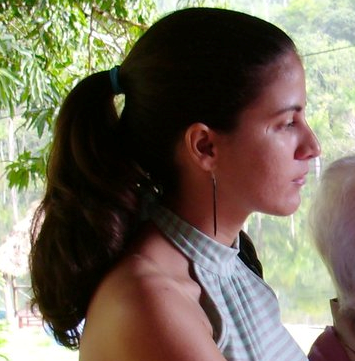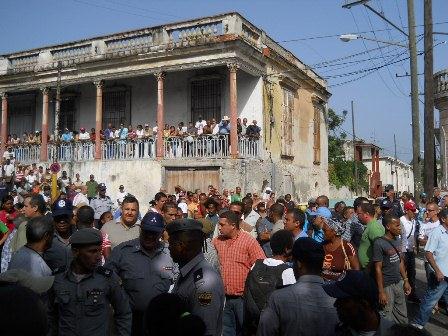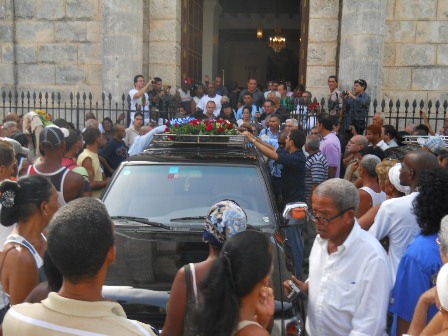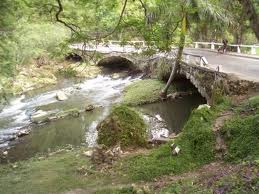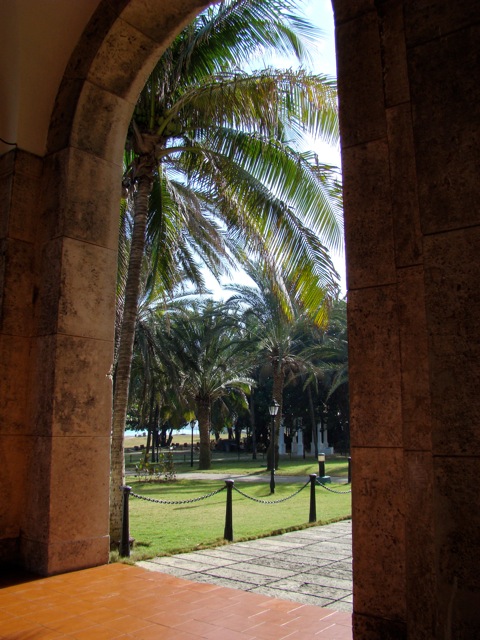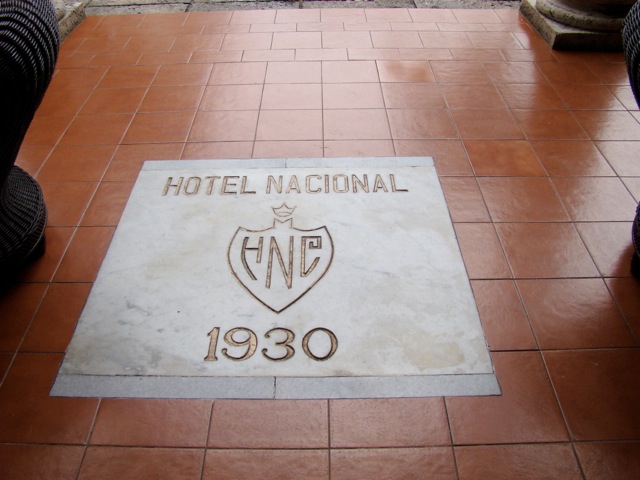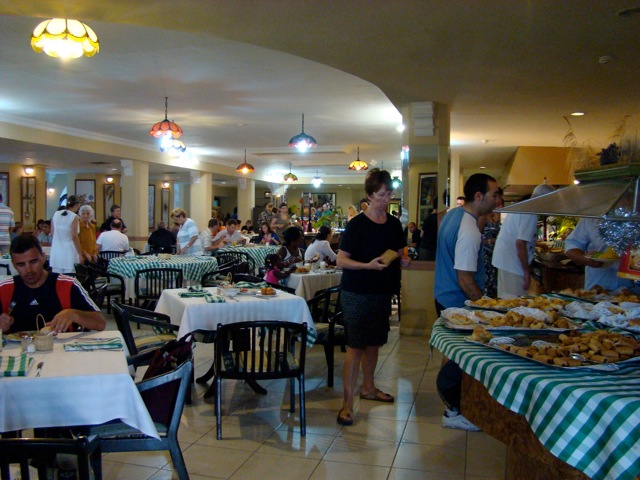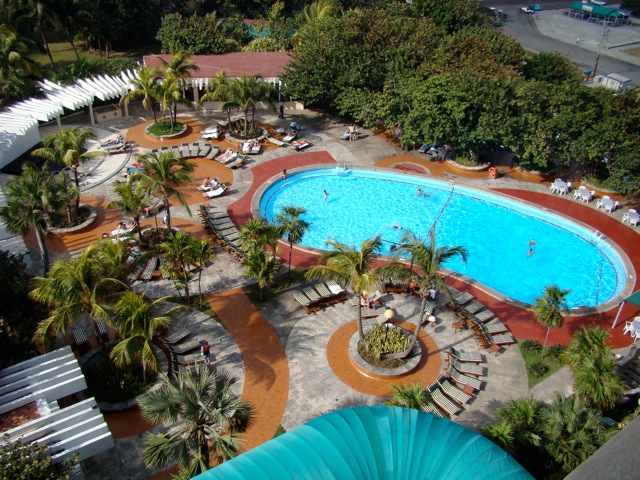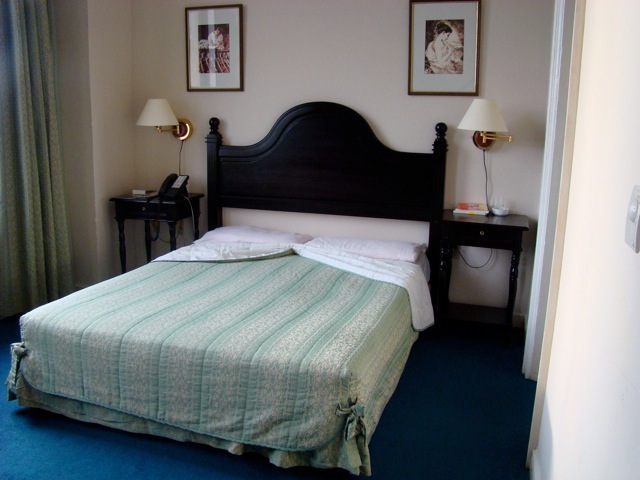 When the funeral cortege left the chapel in Cerro with the body of the political leader Oswaldo Payá, having barely advanced a few yards, it was stopped for some twenty minutes. Something happened at the beginning of the caravan. Several people got out of the car to find out what; we feared the worse although we hoped that nothing was happening and we wanted to give a Christian burial to our dead.
When the funeral cortege left the chapel in Cerro with the body of the political leader Oswaldo Payá, having barely advanced a few yards, it was stopped for some twenty minutes. Something happened at the beginning of the caravan. Several people got out of the car to find out what; we feared the worse although we hoped that nothing was happening and we wanted to give a Christian burial to our dead.
While celebrating the Mass officiated by Cardinal Jaime Ortega, outside, the authorities were planning the engagement. I looked out of the door of the church, looked down the street and I could recognize the faces of the State Security agents, but there, at the end, where the Calzada del Cerro terminates, I saw an officer talking to a large group of civilians.
I remembered that it seemed very much like the operation they had every time the Ladies in White met at their headquarters: the house of their spiritual leaders, the feisty Laura Pollán. I recorded some footage of what was happening and approached as far as the camera lens would let me. In any event, I couldn’t imagine they planned something similar in the midst of that pain, that they would disrespect the family of the deceased, the Cardinal and the entire delegation of the Catholic Church, as well as the broadcasters and the international journalists covering the event.
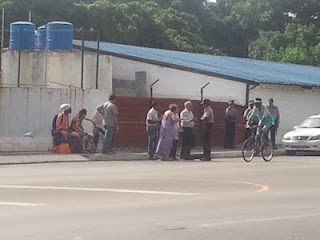 But despite the constant proofs of the governmental abuse, we still insist on being naive, as if this attitude would save us from contagion by the all the evil that always surrounds us.
But despite the constant proofs of the governmental abuse, we still insist on being naive, as if this attitude would save us from contagion by the all the evil that always surrounds us.
What I do know is that the partner of Antonio Rodiles, Ailer Gonzalez, with the intention of finding out what was going on, got out of the car, and, coming to the crowd, witnessed how they preyed on Fariñas and another group of opponents. She demanded their release and the police pushed her also, and forced her with beatings onto a Chinese-made Yutong bus that they’d prepared by way of a rolling jail cell. And inside there, they continued beating her.
Antonio, impatient on seeing that his partner didn’t return, went to look for her. While he was walking he heard a State Security Agent shout to another who was nearby, “Look, there goes Aleaga, let’s grab him.”Rodiles observed that Aleaga wasn’t even taking photos, just walking on the sidewalk, and he said to the “securities” to leave him alone. They looked at him and responded, “Come on, you too, you’re going.” He refuses, meanwhile seeing that Aleaga is being put in a car handcuffed. Rodiles resists their putting him into a car, finally they lay him on the backseat and two burly agents climb on top of him to immobilize him with the weight of their bodies.
Fariñas returns slap
 The lawyer Vallín is in the car with me, and deducing that something happened at the beginning, we get out, and when we’re about to go to the place the procession resumed its march and we got back in the car. In the Calzado de Cerro they’ve already armed an operation of the repressive forces, we managed to see a woman with the rank of colonel waving for the caravan to continue.
The lawyer Vallín is in the car with me, and deducing that something happened at the beginning, we get out, and when we’re about to go to the place the procession resumed its march and we got back in the car. In the Calzado de Cerro they’ve already armed an operation of the repressive forces, we managed to see a woman with the rank of colonel waving for the caravan to continue.
They had two Yutong buses on each direction of the street that were blocking traffic. Without distinguishing the faces I could also see that there were several people inside the buses that they were hitting. Later I learned that they were Fariñas, whom they hit at that moment, which he returned with the same energy.
Ailer was in that bus; and she said the struggle was maintained for a while, that the driver took the route toward the beaches to the east of Havana. That there was a moment when they thought the bus would turn over, it looked like a swing and gave the impression that the driver lost his way, that they would be killed and she began to plead with Fariñas to stop, because he was continuing to brawl with the agents who were trying to hit him.
Fariñas looked at her and understood her fear and appeased them to please her and calm them down. It was a humane act and one of chivalry that made the difference with the government’s henchmen, who continues their insults and provocations.
Ailer handcuffed
They take her to a place that looked like a shelter or abandoned classroom, and told her to hand over the memory card of the camera. She had already secured it, taking it out of the camera and putting it in her purse. And she refuses to surrender it, warning that they themselves are violating the laws, she has been kidnapped on a public street, and they are violating her civil rights that she knows well.
But two women and a man come and push her and throw her on the floor to demobilize her and take the bag. She yells at them one day have to answer for their abuses and repressive attitudes that tarnish the name of all their families. She warns them that she has heart problems and has arrhythmia. They show their fear. Soon they take her to the outside of the Naval military hospital and tell her to exit the car. And leave her there abandoned.
Rodiles refuses to enter the cell
When they take Rodiles to the police station, Aleaga has just arrived. The “securities” continue provoking, they want him to enter a cell but they can’t make him do it despite the shoving, they have given him a lot of punches, scrapes and torn his clothes. I’m not a criminal, Rodiles tells them, I haven’t committed any crime and I am not going in any cell.
A lieutenant colonel in the police intervenes and tells the “securities” that they will allow him to talk, look, he said, I give you my word I will not let them take you to the cell, but first you have to give me your shoelaces and belt, it is mandatory; they put in the waiting room. And what about Aleaga, asks Rodiles. The officer keeps looking at him and understands it will have to be that way or he will continue his protests. Fine, he stays with you at him and know that you will have to be so or continue their protest. Okay, it stays with you, he responds. The “securities,” against their will, accept keeping them out of the cell.
The bells in the cemetery receive us
 We arrived at the cemetery worried, we didn’t understand clearly what had happened. Someone said they had arrested Rodiles, Aleaga, Ailer, Fariñas, among many other dissidents. Singing, accompanied the remains of Oswaldo Payá, from the entrance to the chapel, then to his grave. That death had changed us, the living. Taught us, once again, the lack of scruples of the Cuban government. Nevertheless, we agree that Payá received the funeral honors worthy of a President. That last space I toured hugging the great Cuban poet Rafael Alcides, who, recovering from a recent hospitalization for his diabetes, had not wanted to fail to pay his respects and say a final goodbye to the brother in the struggle.
We arrived at the cemetery worried, we didn’t understand clearly what had happened. Someone said they had arrested Rodiles, Aleaga, Ailer, Fariñas, among many other dissidents. Singing, accompanied the remains of Oswaldo Payá, from the entrance to the chapel, then to his grave. That death had changed us, the living. Taught us, once again, the lack of scruples of the Cuban government. Nevertheless, we agree that Payá received the funeral honors worthy of a President. That last space I toured hugging the great Cuban poet Rafael Alcides, who, recovering from a recent hospitalization for his diabetes, had not wanted to fail to pay his respects and say a final goodbye to the brother in the struggle.
He told me that of course all of us who are fighters like Payá are aware of the risk that faces us when we defy a totalitarian government. But we know that despite risking our lives, it’s impossible to avoid our protest.
Demanding freedom in front of the police station
We were told that Aleaga and Antonio remained in detention at the 4th Police Station in Infanta. In half an hour we were there, along with a group of young fighters, Yoani Sanchez, Reinaldo Escobar and Santana (the writer), to accompany the families of those arrested who were waiting outside the station. There I found a lawyer Vallín who went inside, from time to time, to demand that at least they present the arrest warrants, which they had not yet done; he warned that they were detained there as hostages, in open violation of applicable laws.
Soon a Major of the police came to ask Vallín speak with us and to tell us to go home. By that time we were over twenty people. Vallin told us the desire of the officer after he had retired. We were laughing that the officer thought, just ask, we would retreat. At the time the Major came out again and warned us that we could not be there (we stayed right across the street from the police station). He said that in twenty minutes they would release those arrested.
So we decided to go to the facing sidewalk. The Major returned and told us we could not be there either. To facilitate the release of Antonio, we decided to retreat about fifty feet, our position was no longer right in front of the station. But those twenty minutes passed when they promised to release him; and we waited an hour. Then it occurred to someone to make “a small geographical pressure,” and we returned to the place where we were earlier, on the sidewalk right across from the station.
From there we could observe every movement. The Major returned and told us he was the Chief of the Municipality, and that it we continued there he would have to send the “forces of order” to remove us. We were already over thirty people demanding the release of our brothers. The writer Orlando Luis Pardo had come, with his girlfriend and another girl.
We told the official they we felt for him for all that he’d gone through, given that he had been patient and at all times, had turned to us with respect, but we urged him to keep his word. Reinaldo Escobar told him to put himself in our position, would he be able to abandon a comrade in these circumstances, and we didn’t even know under what condition Antonio was in, if he was beaten.
The officer tried to deny our suspicions, saying they didn’t hit him, but when we showed the wounds that had some had recently received from the repressive forces, among the other detainees Ailer, who had just joined us, the soldier chose to remain silent and, nevertheless, seemed to understand, or maybe it was our decency and sympathetic stance. Finally we told him that if he felt that he should pressure us, we were determined to accompany Antonio in the cell. They we had no objection to his doing his duty.
Then he left and never came back. After a while they released Aleaga and we applauded as he walked out in front of all their captors. But if they thought we would settle for one of two taken, they were wrong; they were left waiting to see what we would do and when they saw we would continue stationed there, they formed the idea to devise other action against us.
Half an hour later a truck of the Special Branch appeared, full of guards. Also two ambulances arrived. In one corner State Security agents in plain clothes began to meet. Ailer saw one of the ones who had beaten her and took advantage of it to tell her abusers to their faces that one day they would have to pay for such abuses. The men did not answer. They turned away and we saw them climb the stairs to shelter in the police station.
Someone phoned to say that Fariñas had been taken to his province in a police car. Soon we were approached by a “security”: a black guy six feet tall who, in order to provoke us, stationed himself very close to us. But his presumed bravery was just a show for his comrades who were watching, because Reinaldo Escobar also went to meet him, and when he passed behind him, I saw the “security’s” cowardly eyes, his six-foot body shrank, he turned to follow Reinaldo with his eyes as if he was afraid of being attacked, something Reinaldo would never do, quite the contrary, because what he did was fake a call for him to overhear, as if he were telling someone that everything was fine.
After that the provocateur also pulled out his phone and informed us we were clowns. I took mine and he heard me and I said there were no problems, that the provocation was sheer monkey business. Then the black guy quickly left, frustrated at not having received the order to beat us and take us by force, which is what he wanted.
After one o’clock in the morning, Vallín and Reinaldo spoke to the Colonel, who said he was the Head of the Station. Vallín said he had twenty-four hours to make the decision to charge the person or not, and to define the offense for which he’d be tried. The official acknowledged that was true, by law, and confirmed that ten o’clock marked the term, and then he would report back what they would do in that case, which they were now studying the decision to make. Vallín and Reinaldo made it clear that it was an agreement, and the Colonel agreed.
The elderly parents of Antonio said as long as we were there they would not leave. Then we got them to agree to let us take them home and come back and meet at ten o’clock. The couple agreed. And so we all went.
At ten o’clock the future of Antonio was decided
When I reached the police station with the attorney Vallín, already there were Antonio’s parents, his partner and some other opponents. Forced to sit in the sun on the sidewalk in front of the station, they would not let us approach, in fact no pedestrians could pass through the place. The whole street was blocked by police cars and policemen. We had to wait twenty yards from the station.
When Yoani and Reinaldo arrived, they hurried their steps to join Antonio’s parents, and police tried to stop them, but they, like experienced athletes of the opposition, managed to dodge them and sit on the wall where the elderly parents were. A police captain said they could not stay there, and Yoani and Reinaldo told them about laws and rights and the police were astonished.
All they could do was exert force, but their order was to avoid confrontation at all times. They were very close to the fateful date of celebration for the defeat of the 26th of July, and they didn’t want to tarnish it, it was bad enough with the mysterious death of Oswaldo Payá.
Immediately the Colonel came out, it was 10:10 in the morning and he should comply with the agreement. He spoke with the parents and then with Vallín, the decision was he would be released, and then we saw Antonio could out in a patrol car and greet us. The Colonel said that the prisoner would be brought to his house.
When we got to Antonio’s house he already was there and told us the abuses they committed, all the horror that his oppressors made him suffer to force him to give up; we saw his ripped clothes ragged, the bruises and scratches on his body.
We all returned to our homes knowing that Antonio, Ailer, Aleaga, Fariñas and the rest of the group were already in theirs, wanting rest, until a new warning alerts us that another injustice has been committed, and we have to once again be present for the freedom of Cuba and our brothers.
Those hours helped us to push the wall of the dictatorship that oppresses us a few inches. We know that the worst part of this difficult struggle is yet to come, that to achieve democracy we will make many sacrifices. But the good thing is that these days we confirm that, despite all the repression of the Castro regime, we worthy Cubans are ready to give ourselves for the ideals that Oswaldo Payá died for.
August 8 2012
